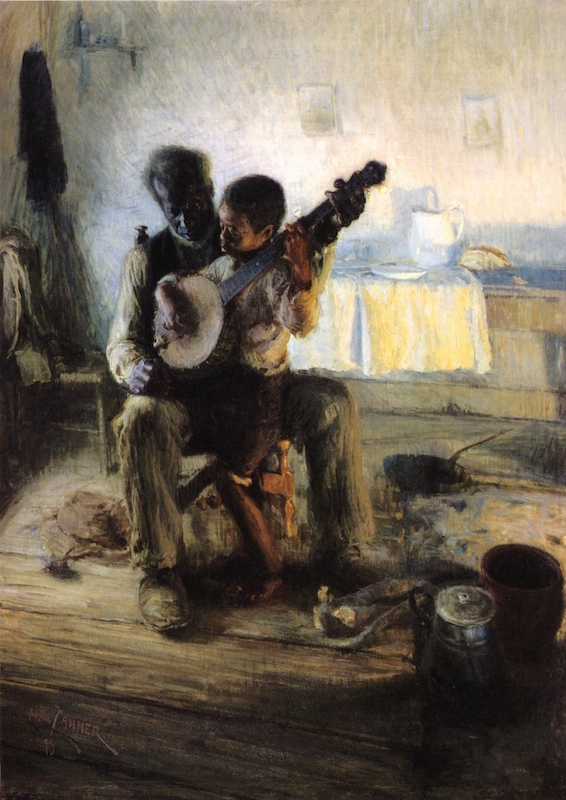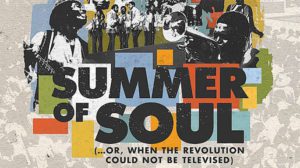The Legacy of African Music within African American Music
by Neema Griffin
African Music
Music in Africa is very colorful and consist of many sounds and instruments coming together. Some of the instruments include the drums, the banjar, marimba, mbira and so much more.
When enslaved people, mostly from West Africa, were brought to America through the middle passage, a lot of the African musical instruments and traditions came with them. Therefore, African American music is highly influenced by their African Ancestors.
The Role of Music
Music has an important role in the African and African American communities. According to our text, African music has traditionally been used to bring people together during things like social settings and community events. Music is used as an avenue of expression in these group settings, and is commonly preformed by a group of professional musicians. Many times, the music would also be accompanied by dance which made whenever it was being preformed, a festive and enjoyable atmosphere.
The role of African American music, however, has served a bit of a different role historically within the community. Although, like African music, it was also used during celebratory events, and to bring people together, there were times it was used as more of a language. Enslaved people used music to communicate with eachother, and communicate their shared experiences, like the struggles that they went through due to slavery. These songs were most commonly referred to as work songs or spirituals. Music is African American history, I feel, was looked at as more of a necessity to survive.

The Banjo Lesson By Henry Ossawa Tanner
The Experience
Timbre
What is Timbre?
The sound quality the distiguishes certain sounds from eachother.
Although criticized by outsiders, timbre is a style in which music is created that connects African and AA music, and makes it special and unique.
Timbre can include many things being played/going on at the same time. Some of these things may include singing, shouting, drums, stomps, musical instruments.
Timbre has historically been a way for people of African descent to express themselves in a unrestricting, creative way.
This African aesthetic can also be seen in other maners including different genres of music. Early jazz and blues is an example of Timbre being found throughout music.
Timbre also refers to the pitch of the instruments being played. In African and African American culture, the change of pitch in the instruments throughout a song may sound like they are talking to eachother.
Musical Structures Within African and African American Culture
Call-Response – This structure is a repetition pattern within a song. Many times there is a lead singer who improvises their lyrics throughout the sound, whole the other singers sing the repetitive chorus.
The purpose of this structure is to encourage improvisation and cohesiveness among participants. Also, its purpose could simply be to lengthen the song.
Text and Pitch – This structure gives the singer a lot of flexibility to personalize the pitch and pace of each line in the song as they go along.
This structure gives a song compexity and layers. While following this structure, a singer may sing the same line multiple times, but it will sound different every time.
Usually artist use this technique to embellish the climactic part of the song to make it stand out from the rest.
other works by the author
The Legacy of African Music within African American Music
/*! elementor – v3.4.3 – 30-08-2021 */ .elementor-heading-title{padding:0;margin:0;line-height:1}.elementor-widget-heading .elementor-heading-title[class*=elementor-size-]>a{color:inherit;font-size:inherit;line-height:inherit}.elementor-widget-heading .elementor-heading-title.elementor-size-small{font-size:15px}.elementor-widget-heading .elementor-heading-title.elementor-size-medium{font-size:19px}.elementor-widget-heading .elementor-heading-title.elementor-size-large{font-size:29px}.elementor-widget-heading .elementor-heading-title.elementor-size-xl{font-size:39px}.elementor-widget-heading .elementor-heading-title.elementor-size-xxl{font-size:59px} The Legacy of African Music within African American Music by Neema
The Story of Jazz Notes
“Jazz is the first ‘World Music’” Roots in West Africa Began when African Slaves were taken to the Caribbean Lead to New Orleans (A main
The Evolution of Jazz Music in the 30’s and 40’s
/*! elementor – v3.4.6 – 19-10-2021 */ .elementor-heading-title{padding:0;margin:0;line-height:1}.elementor-widget-heading .elementor-heading-title[class*=elementor-size-]>a{color:inherit;font-size:inherit;line-height:inherit}.elementor-widget-heading .elementor-heading-title.elementor-size-small{font-size:15px}.elementor-widget-heading .elementor-heading-title.elementor-size-medium{font-size:19px}.elementor-widget-heading .elementor-heading-title.elementor-size-large{font-size:29px}.elementor-widget-heading .elementor-heading-title.elementor-size-xl{font-size:39px}.elementor-widget-heading .elementor-heading-title.elementor-size-xxl{font-size:59px} The Origin of Jazz Jazz is a genre of music that
Ari Lennox
/*! elementor – v3.4.8 – 16-11-2021 */ .elementor-heading-title{padding:0;margin:0;line-height:1}.elementor-widget-heading .elementor-heading-title[class*=elementor-size-]>a{color:inherit;font-size:inherit;line-height:inherit}.elementor-widget-heading .elementor-heading-title.elementor-size-small{font-size:15px}.elementor-widget-heading .elementor-heading-title.elementor-size-medium{font-size:19px}.elementor-widget-heading .elementor-heading-title.elementor-size-large{font-size:29px}.elementor-widget-heading .elementor-heading-title.elementor-size-xl{font-size:39px}.elementor-widget-heading .elementor-heading-title.elementor-size-xxl{font-size:59px} APPLYING PRESSURETHE STORY OF Ari Lennox by Neema Griffin /*! elementor

Summer of Soul Summary
Summary The Harlem Cultural Festival was a festival that impacted a significantly large group of people. In the year when it emerged, 1969, there was

